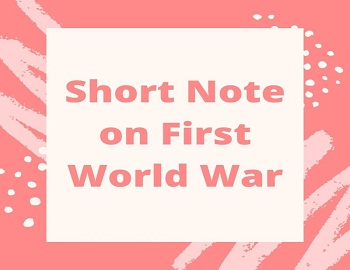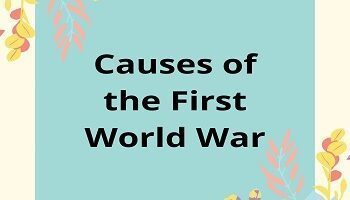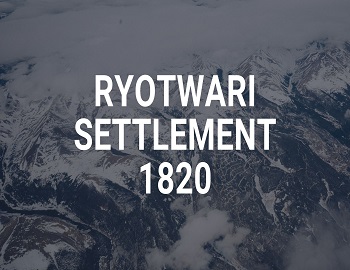First World War:
The war fought from 1914 to 1918 is called the First World War. It has its beginning in Europe and was mainly fought in the continent of Europe but all the countries of the world were involved in it in one way or the other. All the big powers of the world joined this war. Extreme nationalism, economic imperialism, factionalism, militarism, the race for arms etc. made the First World War inevitable. The immediate cause of this war was the murder of Austria’s Arch Duke Ferdinand by a Serbian nationalist in Bosnia on June 28, 1914. On July 28, 1914, Austria declared war against Serbia. With this declaration, all the big states in Europe already entangled in the web of diplomatic treaties plunged into the war. Russia sided with Serbia and declared war against Austria and Germany retaliated by declaring war against Russia and France. On August 3 England declared war against Germany to safeguard the sanctity of Belgium. Thus began the devastating World War I. On May 23, 1915, Italy joined the war on the side of the Allies and declared war against Austria. The USA remained neutral but after the Russian Revolution of 1917 and the wreck of the passenger liner Lusitania, she declared war against Germany on April 6, 1917. The First World War continued for almost four years and came to an end on November 11, 1918, when Germany admitted defeat and surrendered unconditionally. In 1919 Germany signed the Treaty of Versailles as a denouement of the devastating war. It had both short term and long term consequences. End of despotic monarchies, a rise of democracy, increase in the influence of the USA, economic crisis, evolution of socialism, the establishment of the League of Nations, change in the position of women and political awakening among them are its chief consequences.









Comments (No)